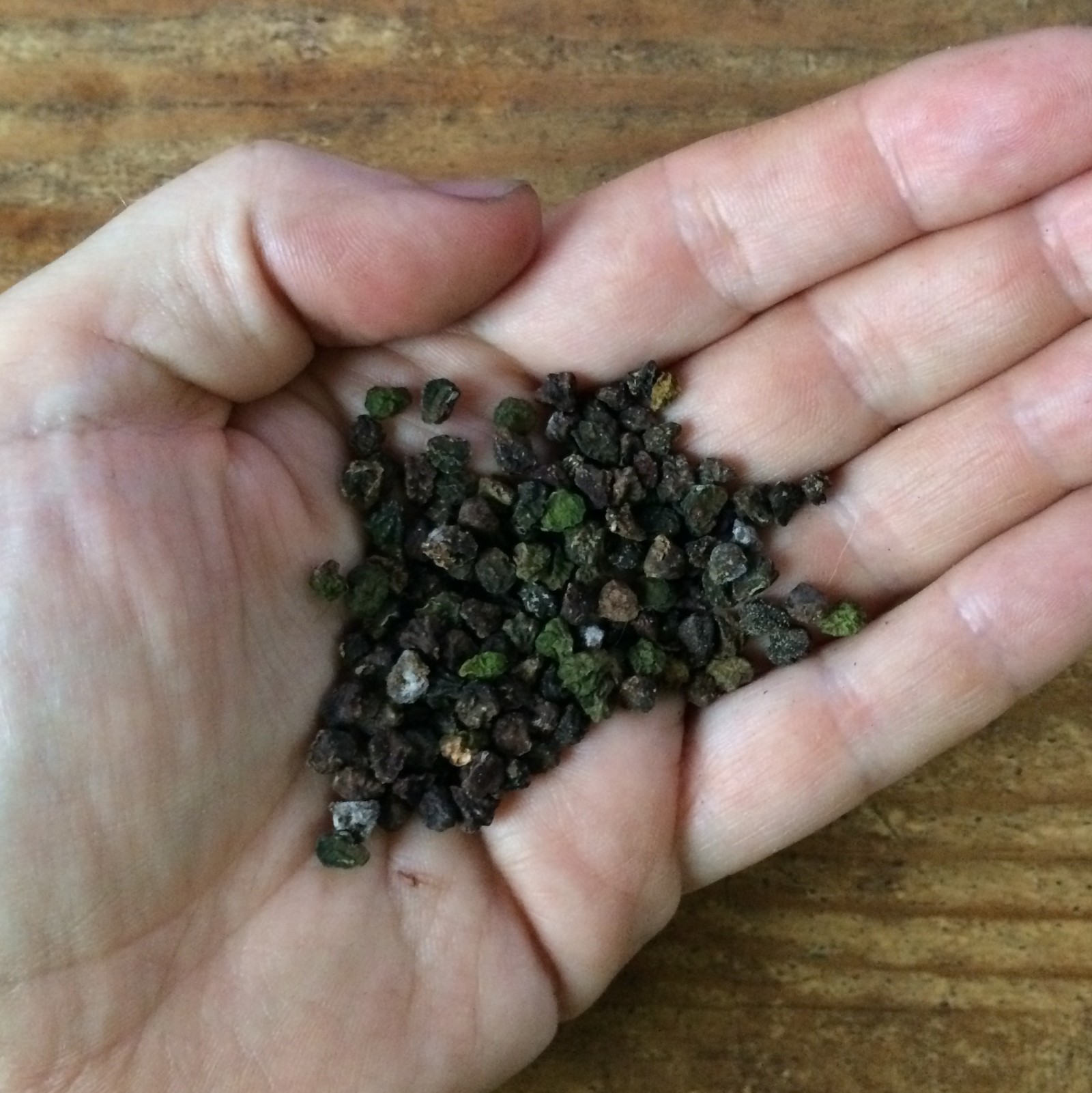No products in the cart.
Mashua information and growing instructions
Mashua seed is difficult to produce in quantity and is not available every year. Purchases are limited to 1 packet per customer this year, a defense against one person buying them all and reselling them on eBay, as happened last time.
Mashua is normally propagated vegetatively, by replanting tubers, which are clones. Mashua also produces true seed, although it requires a frost-free autumn and early winter in order to mature the seeds.
When you grow out true mashua seed, you will get a brand new variety that you can maintain indefinitely by replanting the tubers. Plants that are propagated vegetatively are very appealing this way: if you get a plant that you like, you have a stable new variety that is all your own.
Group 1 seeds are open pollinated, harvested from our collection of domesticated mashua varieties. Depending on the year, somewhere between 6 and 15 varieties will be included in the mix. Mashua usually self-pollinates unless steps are taken to prevent this, however, it is a tetraploid crop, like potato, so even self-pollinated seeds should display quite a bit of diversity.
The 2018 batch consists of mostly seeds from Blanca, Copalis, Hahamish, and Ken Aslet with small amounts of a few others mixed in.
Mashua germination is very slow and irregular, as is usually the case in this genus, requiring 2-6 months. Seedlings develop rapidly once they break the surface of the soil.
Packet details:
10 seeds. Expected germination rate is about 60% in six months, but may be greater if seeds are given more time to germinate.
| Weight | .1 lbs |
|---|---|
| Dimensions | 3 × 3 × 0.1 in |
| Climate | |
| True Breeding | |
| Origin | |
| Licensing | |
| Product Type | |
| Availability |
Only logged in customers who have purchased this product may leave a review.


Reviews
There are no reviews yet.